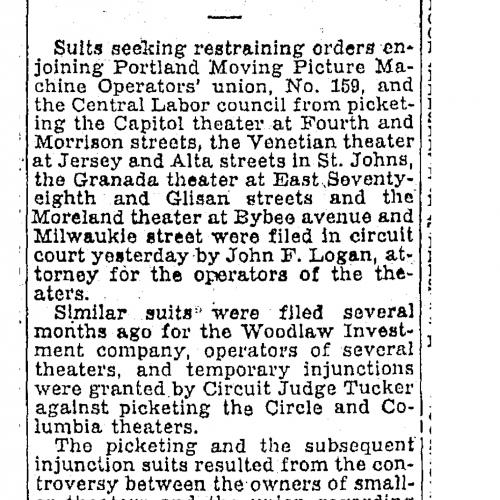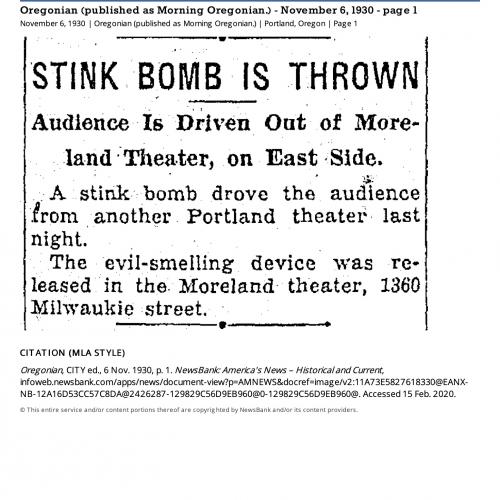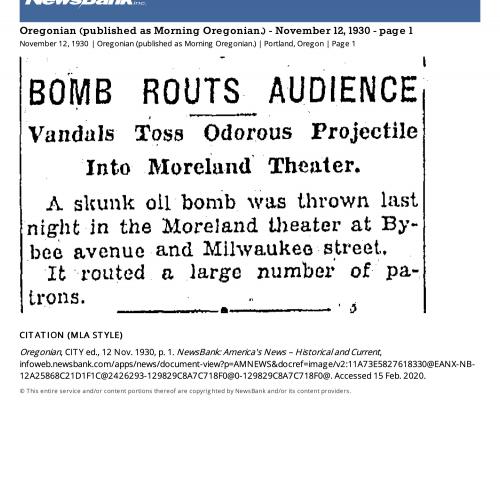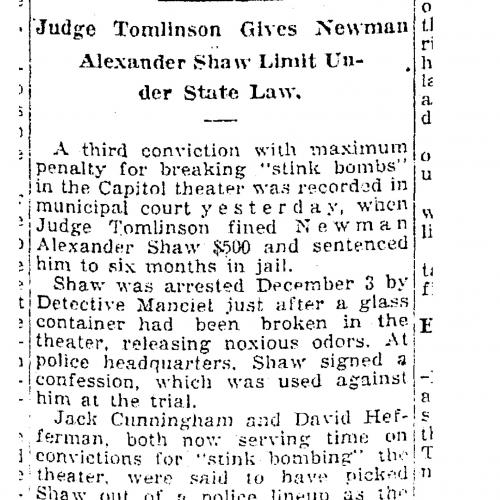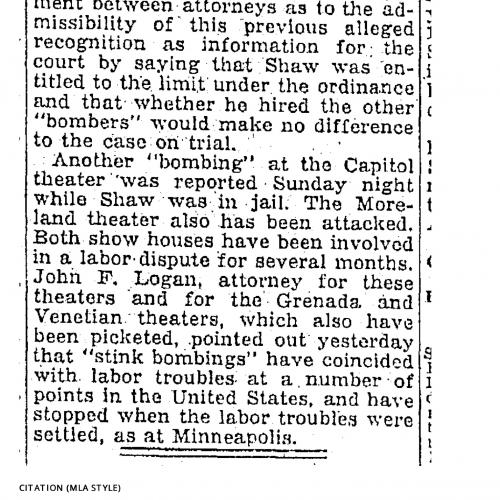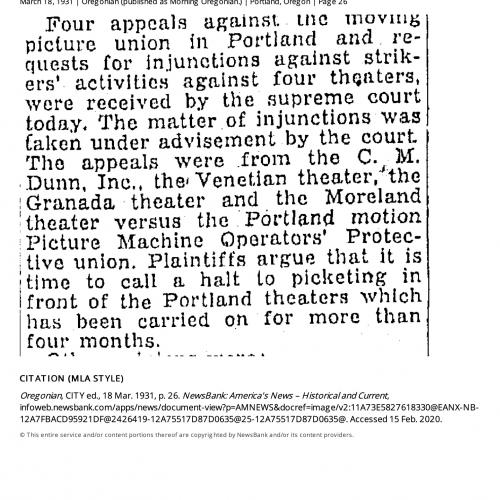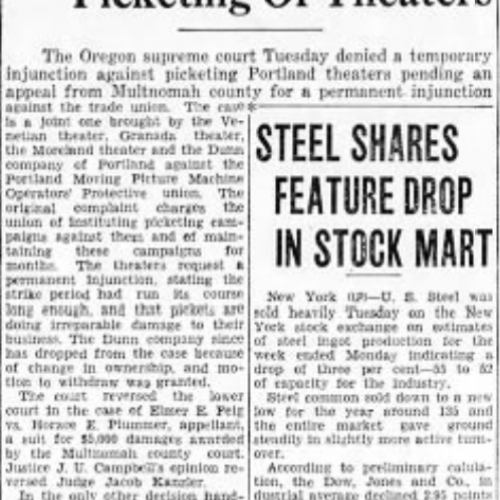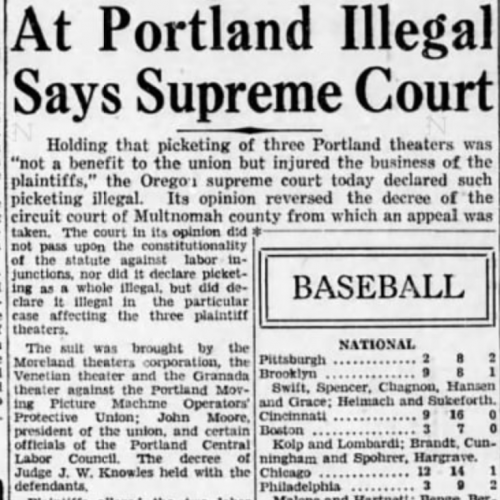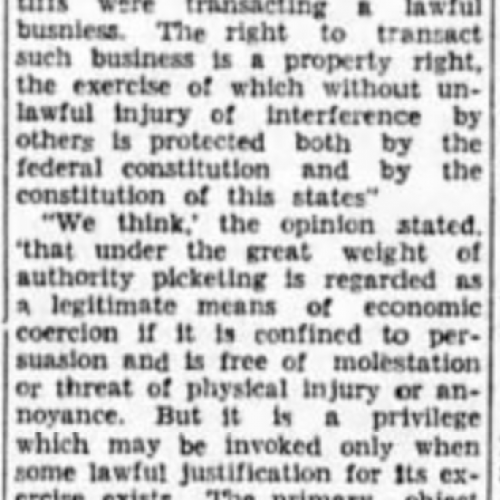The Moreland Theater, among others, was involved in a dispute against the Portland motion picture machine operator’s protective union. This was a major battle for better working conditions that began with the union demanding that there be two projection operators, instead of just one, and an increase in pay. This led to a long series of picketing, which eventually led the case to end up in the Oregon Supreme Court. It is unclear when the dispute began, but on July 8, 1930, several theaters filed a restraining order against the union and Central Labor council to cease the pickets that were occurring at those theaters. John F. Logan filed the order in a circuit court; he was the attorney representing the theaters including the Moreland, Capitol, Venetian, and Granada theaters. Several months prior an injunction was granted to the Circle and Columbia theaters for the picketing to cease, but unfortunately this did not set a precedent for this case.
While these pickets were occurring, the same theaters were also hit with a series of ‘stink bombs’ where someone would smash a glass container filled with skunk spray, causing the patrons of the theater to evacuate because of the smell. The Moreland Theater was targeted on November 5th and 11th, 1930. Other theaters were also bombed, which lead to the arrest of Newman Alexander Shaw, Jack Cunningham, and David Hefferman in December of that year, but the ‘bombings’ continued after their arrests, so others were also involved.
In April 1931, the theaters filed an appeal for a temporary injunction against the union, but was denied by the supreme court. In June 1932, the Oregon Supreme Court ruled that the picketing activity conducted by the union and labor council should be deemed illegal. It was decided by Judge J. W. Knowles that the picketing was not benefiting the goals of the union and was only hurting the business of the theaters. The right to conduct their business was deemed protected by the Federal Constitution and Constitution of the States, so it judged this particular picket to be illegal, but only in this case.
